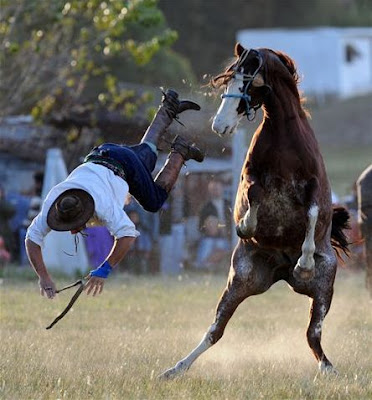Many begin the process of addiction recovery with high expectations and high hopes. Many have decided that "the pain of addiction is greater than the pain of recovery" and want to take steps to finally rid themselves of their addictive behavior.
(NOTE: Even though the topic here concerns addiction recovery, the ideas apply to any unwanted behavior)
They may have been been given an ultimatum from their partner. They may have been advised by someone to seek help. They may have lost someone very important to them as a result of their addictive tendencies. They may have tired of the secrecy and double life they have had to live to maintain their addiction.
So they begin to attend a support group. They begin seeking therapeutic help from a therapist versed in addiction recovery. They begin reading recovery literature. They begin regular consultations with an ecclesiastical leader. They are on the road to sobriety.
In many cases, through sheer willpower, known as "white knuckling," they achieve some sobriety. Triggers to engage in the addictive behavior may recede for a time. They may be filling their head with recovery. This can be a hopeful time.
Having fallen off the horse, the focus often is placed on the addictive act rather than on what took place before that led up to the act. The reality is that the addictive act was symptomatic, the final link in a chain of previous thoughts and feelings. Whether due to triggers or due to engaging in "slippery slope" thinking and/or behaviors, there was a specific moment in which the warrior had the thought to engage in the addictive behavior.
Nearly all of the literature indicates, and nearly all those who work with people with addictions agree, that most warriors will sooner or later fall off their horse on the road to sobriety and recovery. It just happens! But that doesn't mean that all is lost! It doesn't mean that there is no hope for sobriety! It certainly doesn't mean the warrior is a loser! All it means is that the warrior fell off the horse!
A difference needs to be made between "slip ups" and "relapses" for the warrior who sincerely wants to put an end to the addictive behaviors and has amassed some sobriety time, however modest. A "slip up" can happen when he/she willfully but disappointedly engages in the addiction. A "slip up" can happen when something unexpectedly occurs that prompts him/her to "go to the dark side." A "slip up" can take place when a loved one says or does something that really hurts, physically or emotionally, and, unable to handle the inner turmoil. the warrior engages in the addiction. In other words, the "slip up," while unwanted, is a disappointment, but it is part of the sobriety process. And falling off the horse hurts!
In either case, the goal needs to be to get back on the horse and start riding again. Those who relapse have to decide that it is worth the trouble; whether they want to put themselves through the process again. It may take time for them to find and regain hope. If the act was viewed as a "slip up," he/she needs to own what has happened and focus on a hopeful, brighter future.
But before mounting the horse again, a careful study must be made to determine what happened in the first place; a "post-mortem" so to speak.
What event prompted the original thought to engage in the addictive behavior? What feelings or thoughts came crashing down like a tsunami that overwhelmed the warrior? Were these feelings or thoughts familiar ones from their past, or did they catch the warrior off guard? What circumstances were present that allowed the behavior to take place? What precautions were or were not taken to maintain sobriety? What can be learned from the circumstances of what happened?
Answeering these questions might lead to more opportunities to look at in-depth, underlying reasons for the act. They can lead to seeing unresolved issues from growing up years. They can lead to understanding better what emotional core issues manifested in the act. But dealing with these deeper issues is for another day!
The important thing to do in the moment is to get back on the horse and begin riding again, accumulating sobriety time and confidence once again, armed with greater understanding as to what happened, and the decision as to what to do if the original thought and circumstances occur again.




No comments:
Post a Comment